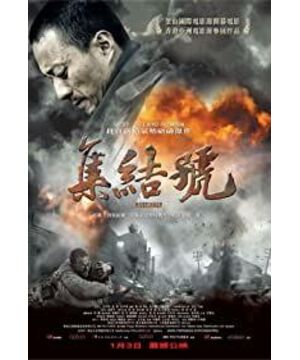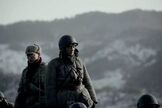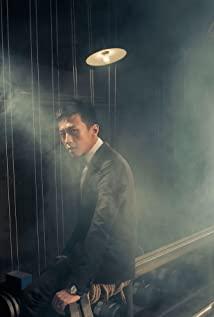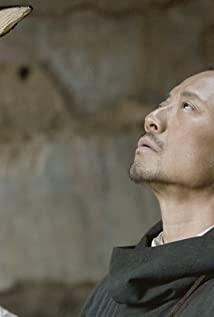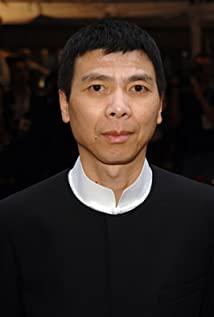"Assembly" was released in 2007. It tells the story of the war of liberation. Gu Zidi led all the soldiers of the 9th company to fight with the enemy on the bank of the Wen River to cover the retreat of the whole regiment. s story. When Wang Yichuan commented on the film, he called it "director Feng Xiaogang's transformational work, which is a combination of the main theme film, art film and entertainment film". Similarly, "Assembly" also "blows out" a "new variant" of Chinese commercial blockbusters.
Since the late 1990s, Feng Xiaogang's series of New Year's films have stood out in the Chinese film industry and won high box office. So first of all, let's analyze the "commerciality" of "Assembly" from the consistent "Feng's film style": a major feature of commercial films is "big scenes and big productions", and "Assembly" is no exception. In order to make the war effect more shocking and realistic, the crew specially invited a special effects team from South Korea to make it. In terms of audio-visual effects, he did not shy away from learning from the experience of foreign blockbusters. In order to show the cruelty of the war between the enemy and the enemy, the two-way movement of the characters and the camera was used to create a sense of urgency. At the same time, the constant switching of medium and panoramic shots was used to highlight the casualties of soldiers. grievous. In answering why the brothers of Gu Zidi and the 9th Company were put on the uniforms of the US military in the film, the director of the film replied: "for good looks". This kind of "good-looking" is full of Fung's humor and irony, which may be due to the visual effects of the film itself, or it may be a kind of pandering to audiences who have always appreciated "Hollywood" movies.
Secondly, the lines of the characters also show the characteristics of "little people's laughter and scolding" in Feng's films. In the face of the enemy's heavy fighting, Platoon Leader Jiao did not forget to pull the only literate instructor to write a short letter at home; when he went out to investigate the enemy's situation, Gu Zidi, who was discovered by the US military, immediately used "half-familiar" Korean words to dismiss him. The enemy's suspicion; when he knew that the regiment commander had not given an order to retreat his company at all, he cried and leaned against the regiment leader's tombstone and said that he was not "hypocritical", but to prove it to the brothers... The humorous "Beijing-style lines" brought a buffer to the theme-bearing film, making the film's performance relaxed and satisfying, and also met the requirements of ordinary audiences for the audio-visual effect of the film. At the same time, director Feng Xiaogang also uses the shell of commercial films to introduce the audience into the deep narrative of the film.
In the first half of the movie, before his sacrifice, Jiao Dapeng said that he heard the sound of the "Assembly", but Gu Zidi said that he did not hear it and insisted on guarding his position. In the end, all nine companies died. And Guzidi has been blaming himself for this. In the later plot, since the previous troops were reorganized, Guzidi could not find the organization, and the identity of the dead brothers of Jiulian could not be proved and could only be arranged according to "disappearance". In order to give a statement to the dead brothers, Gu Zidi also began to search for an organization to find out the truth of the assembly number. In traditional Chinese culture, in the face of national disasters, a gentleman should "dedicate his life to the national disaster and see death as his home"; in the face of brothers and sisters, he should "put righteousness first". When the director expresses traditional cultural concepts, he uses "righteousness" as the pillar of the whole film. Gu Zidi is willing to fight bloody battles because of his "righteousness" for the country. No matter whether he loses contact with the organization or not, he is willing to rush to the front of the battlefield; because To the "righteousness" of his superiors, he always took the assembly order as an order, strictly guarded the land acquisition, and never retreated; because of the "righteousness" of his brothers, he did not forget to carry the bodies of the dead soldiers into the caves while enduring the hail of bullets; In order to prove that Jiulian's brothers are martyrs, they dug up their bodies on the old battlefield every day, trying to identify them one by one... This kind of "loyalty" is a concept that is rooted in the hearts of every Chinese and is generally recognized by the audience. And this value concept is integrated into the film's image narrative, which deduces the context of cultural complex.
If in the last century, we discussed whether movies should be combined with narrative, after a series of commercial and genre films have flourished, now we should talk about how movies should be combined with artistry and commerce. The works directed by Feng Xiaogang undoubtedly give us a new idea. The production of commercial films can create spectacle, but it is only a shell, a tool to bring the audience into the plot, and the real connotation of the film lies in the art of society and history. thinking. When a traditional art film is conceived, can it also find a "unique angle", structure the film from a perspective close to the local audience, and create a new type of "art film" that the public likes to see?
View more about Ji jie hao reviews


